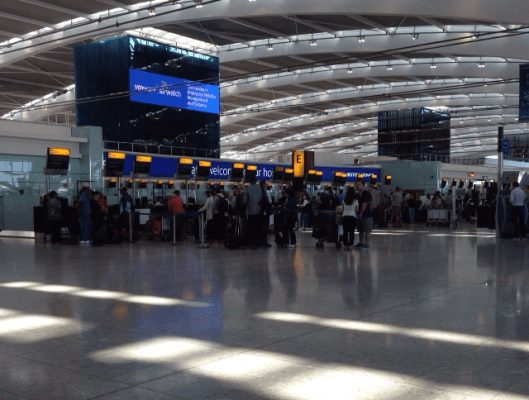The U.K. government has issued new aviation security guidelines warning that passengers traveling by plane to or from the U.K. might now face checks on any electronic devices they are carrying with them to prove their devices can be powered on.
Earlier this week the TSA issued enhanced security measures for airline passengers traveling to the U.S. from certain overseas airports (which evidently included the U.K.) in which it said passengers may be asked to power-on electronic devices as part of the security screening process prior to boarding their flights, and those with “powerless” devices would not be permitted to take them on board.
In other words, a dead battery on your phone might result in your missing your flight.
The U.K. implemented the TSA restrictions on passengers flying from the U.K. to the U.S. but has now widened the requirement to cover passengers flying to and from the U.K. — although it’s not specifying which routes and countries are being targeted for the stepped-up security measures.
Speaking in an interview with The Telegraph newspaper, the U.K. Transport Secretary Patrick McLoughlin said passengers will be required to show that any devices they are carrying can be operated “if asked to do so.”
“This will be done on various routes, those routes are not going to be published and disclosed,” he added.
He also declined to specify whether the move was in response to a specific threat. There has been no change to the U.K.’s terrorism threat level, which remains at level 3: substantial — defined as meaning “an attack is a strong possibility.”
The official government advice on hand luggage restrictions at U.K. airports now notes:
Make sure your electronic devices are charged before you travel. If your device doesn’t switch on when requested, you won’t be allowed to bring it onto the aircraft.
